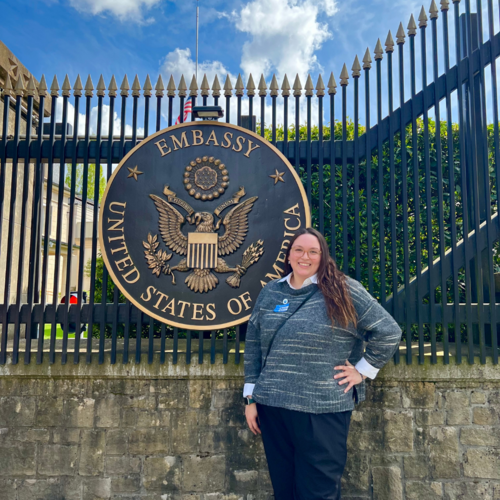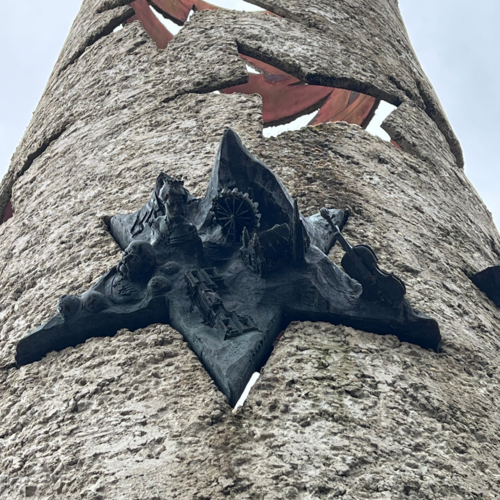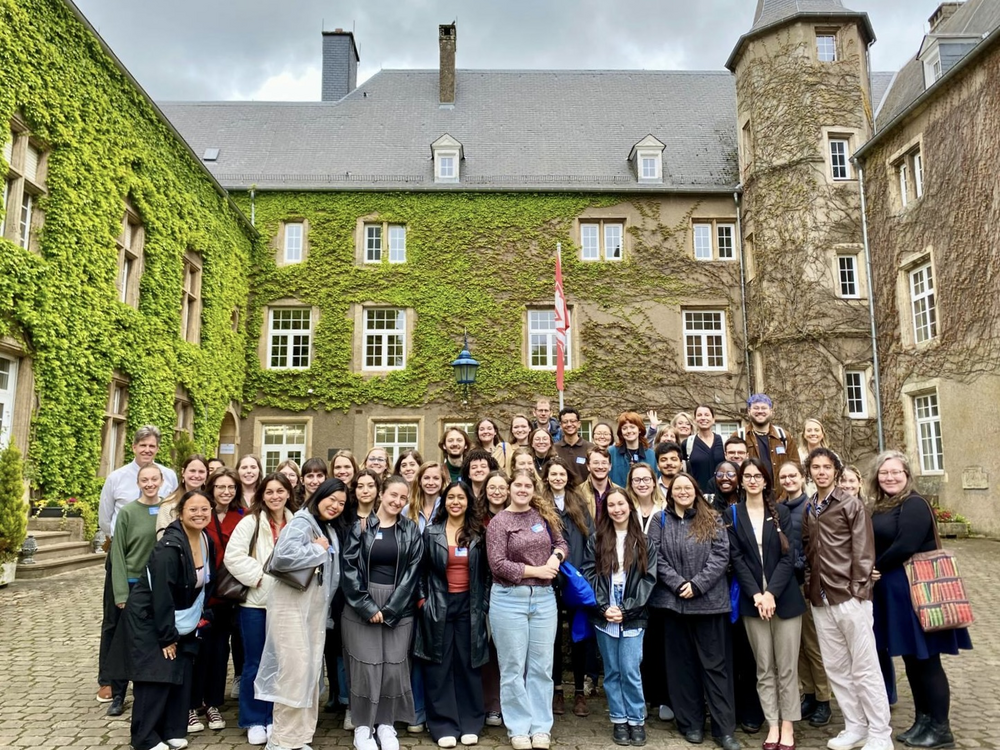This year, Fulbright Belgium / Luxembourg / Schuman organized a seminar aimed specifically at those teaching English to students in their host country. This was the inaugural seminar, and Fulbright Austria was excited to send Anjolina Horzynek, one of our 2024–25 US Fulbright combined grantees, to represent our program participants. Following the seminar, Anjolina wrote an article about her experience.
Fulbright Enrichment Seminar 2025: From ETA to Educator
4 Juni 2025Read an article about 2024–25 US Fulbright combined grantee Anjolina Horzynek's experience at this first-ever event held in Luxembourg.
By Anjolina Horzynek
2024–25 US Fulbright combined grantee
This past April, I was fortunate enough to attend the first-ever Fulbright ETA Enrichment Seminar: From ETA to Educator. The goal of this conference was to connect English teaching assistants (ETAs) representing over 30 European countries while giving them tools and inspiration to bring to their classrooms, both currently and in the future. Throughout the three-day seminar, we were exposed to many teaching practices that will help us guide our students and inspire them to be better global citizens. We were able to engage in critical conversations while also analyzing and reflecting on our own experiences.
The seminar also included a panel discussion and reception hosted at the US embassy in Luxembourg. Here we heard from current and former Foreign Service officers about their experiences and perspectives on intercultural diplomacy and were also able to network with members of the Luxembourgish government. We also had the opportunity to visit an international school in Differdange and learned about the uniqueness of the Luxembourgish school system.
 Anjolina standing outside the US embassy in Luxembourg
Anjolina standing outside the US embassy in LuxembourgIn another outing, we visited the town of Schengen and learned about the Schengen Agreement, which established the Schengen border-control area. We visited a statue that was dedicated to this agreement, with each member state having a star representing aspects that are culturally significant to them. The Austrian star, pictured here, includes the Riesenrad and Stephansdom, among other things. Every program participant took turns guessing which star represented which country while also trying to find their own.
 The Austrian star in the monument for the Schengen Agreement
The Austrian star in the monument for the Schengen AgreementOne of my favorite sessions gave us insight into opportunities to teach English abroad after Fulbright, mainly at international schools. The facilitator described her experiences teaching English all over the world and shared some of the struggles and joys she encountered while abroad. She also gave us practical resources to help us find jobs and useful tips on how to not only survive but thrive while living outside of our comfort zones. It left me and many of my peers inspired and hopeful for our future adventures.
Though all of my experiences at the conference were incredible, the most impactful part of this seminar was meeting fellow Fulbrighters and hearing their stories. I appreciated learning the unique stories of how each of us had been drawn not only to Fulbright, but also to the countries in which we’re living for the duration of our grant periods. Some have ancestral connections, some wanted to continue learning the language of their country, and some just wanted something different. All of us have made homes where we are in Europe and have had life-changing experiences. It was both enriching and validating to find similarity in different experiences that we’ve had and to swap stories about our lives inside and outside of the classroom.
 Participants of the 2025 ETA Enrichment Seminar outside of the Miami University Center in Differdange
Participants of the 2025 ETA Enrichment Seminar outside of the Miami University Center in Differdange